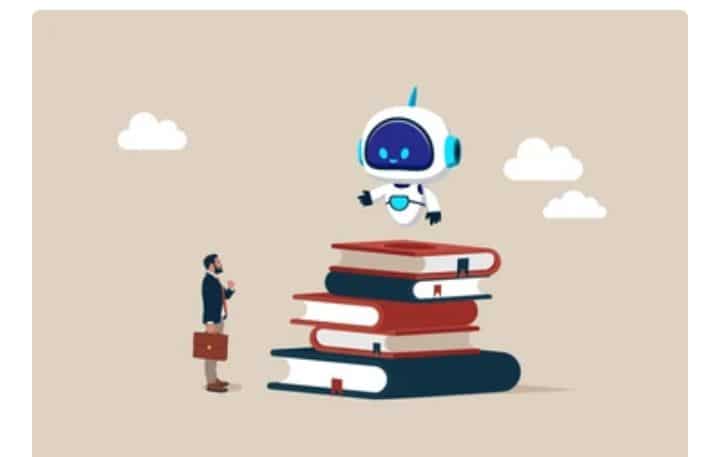Artificial Intelligence (AI) is rapidly transforming society, influencing everything from healthcare and education to the economy and entertainment. It refers to the development of machines that can perform tasks that would typically require human intelligence, such as reasoning, problem-solving, learning, and language processing. While AI holds tremendous potential for innovation, it also presents a series of complex challenges and ethical dilemmas. This article explores the various ways AI impacts society, examines the challenges it poses, and considers the ethical questions that arise from its widespread adoption.

1. AI and Economic Transformation
AI is a driving force behind the digital economy, with the potential to revolutionize industries and create new ones. In the business world, AI is increasingly used for automation, data analysis, and customer service, offering both opportunities and challenges. Automation and Job Displacement One of the most discussed concerns about AI is its potential to displace jobs. Automation technologies, such as machine learning and robotics, are capable of performing tasks traditionally carried out by humans, ranging from manufacturing to administrative work. While this can lead to greater efficiency and reduced costs for businesses, it also raises fears about unemployment, particularly in sectors like retail, transportation, and customer service.
The World Economic Forum (WEF) has predicted that AI and automation could displace millions of jobs in the coming years, but also create new job opportunities in areas like AI development, machine maintenance, and data analysis. The challenge lies in ensuring that workers are equipped with the necessary skills to transition into new roles, which may require substantial investment in education and retraining programs. AI in Business Decision-Making AI is also transforming how businesses make decisions. Machine learning algorithms are increasingly used to analyze vast amounts of data and generate insights that would be impossible for humans to process manually.
These insights can inform everything from product development to marketing strategies, enabling companies to operate more efficiently and effectively. However, there are concerns about the transparency and accountability of AI-driven decision-making processes. If algorithms are not properly designed or tested, they could perpetuate biases or lead to unintended consequences. Moreover, the increasing reliance on AI for decision-making raises questions about the role of human judgment in areas like hiring, lending, and law enforcement.

2. AI in Healthcare: Opportunities and Ethical Dilemmas
AI holds tremendous promise for improving healthcare by enabling more accurate diagnoses, personalized treatments, and greater efficiencies in medical research. Machine learning algorithms, for example, can analyze medical images to detect signs of diseases like cancer, often with higher accuracy than human doctors. AI can also assist in drug discovery by analyzing patterns in data to identify potential treatments more quickly.AI-Driven Diagnostics and Treatment AI’s potential to revolutionize diagnostics is already evident. Systems like IBM Watson and Google’s Deep Mind have demonstrated the ability to outperform doctors in diagnosing diseases such as breast cancer, diabetic retinopathy, and heart conditions. By analyzing vast datasets from medical records, AI can identify patterns that may go unnoticed by human clinicians, leading to faster and more accurate diagnoses.
However, the integration of AI into healthcare raises several ethical issues. First, there are concerns about data privacy and the potential misuse of sensitive medical information. Patients’ health data is often used to train AI algorithms, and without proper safeguards, there is a risk that this data could be accessed or shared without consent. Second, there are concerns about the potential for AI to replace human healthcare providers. While AI may improve efficiency, the human element of healthcare—such as empathy, ethical judgment, and the doctor-patient relationship—is difficult to replicate with machines. This raises the question of whether AI should be used to augment healthcare workers’ capabilities rather than replace them entirely.
3. AI and Social Inequality While AI has the potential to create significant societal benefits, there are concerns that its widespread adoption could exacerbate social inequalities. The development and deployment of AI technologies are often concentrated in wealthy, technologically advanced countries and corporations, which may leave low-income or developing nations behind. The Digital Divide Access to AI technologies is uneven across the world, creating a digital divide between those who have access to cutting-edge tools and those who do not.
In developed nations, AI can improve productivity and innovation, while in less developed regions, limited access to these technologies could hinder economic growth and exacerbate inequality. Moreover, AI systems are often designed and trained using data from a specific demographic or cultural context, which can lead to biases in the outcomes they produce. For example, facial recognition technology has been shown to have higher error rates for people of color, leading to concerns about its fairness and accuracy. If AI systems are not carefully designed and tested for diverse populations, they may inadvertently reinforce existing social inequalities.
4. Ethical and Legal Implications of AIAs AI continues to evolve, it presents a host of ethical and legal challenges that need to be addressed. Some of the most pressing concerns relate to bias, accountability, privacy, and the potential for AI to be used in harmful ways. Bias and Discrimination in AI AI systems are only as good as the data they are trained on, and if that data reflects historical biases, those biases can be encoded into the algorithms themselves.
For example, an AI system used in hiring decisions may perpetuate gender or racial biases if it is trained on data that reflects past hiring practices. This can result in unfair outcomes, such as women or minority candidates being passed over for job opportunities, even if they are equally or more qualified than other applicants. Efforts to reduce bias in AI are ongoing, but it is a difficult problem to solve. One potential solution is to ensure that diverse teams of developers are involved in the creation and testing of AI systems, as they may be better able to identify and mitigate potential biases. Accountability and Responsibility As AI systems become more autonomous, it becomes increasingly difficult to determine who is responsible when something goes wrong. For example, if an AI-powered car causes an accident, who should be held accountable—the manufacturer of the car, the developers of the AI software, or the driver? This is an issue that requires careful legal consideration, as existing laws may not be equipped to deal with the complexities of AI.

Governments and organizations are beginning to explore regulations and frameworks to address these issues, but creating a legal system that can adequately handle the challenges posed by AI is a work in progress.AI and Privacy Concerns Another major ethical issue related to AI is privacy. AI systems often rely on vast amounts of personal data to function, raising concerns about how that data is collected, stored, and used. For example, AI-powered virtual assistants like Amazon’s Alexa or Apple’s Siri continuously collect data about users’ habits, preferences, and behaviors, raising questions about how this data is shared with third parties.Ensuring that individuals’ privacy rights are protected in the age of AI is essential. Governments and organizations need to establish clear guidelines about how data should be collected, who has access to it, and how it can be used.
5. The Future of AI in Society Looking ahead, the future of AI in society will depend on how we address the ethical, legal, and social challenges outlined above. If these challenges can be navigated effectively, AI has the potential to improve lives in countless ways. It could lead to more efficient healthcare systems, better education, and more sustainable economic growth. It could also play a key role in addressing global challenges such as climate change, poverty, and food security.
However, if these challenges are not addressed, AI could contribute to greater social inequality, erode privacy, and exacerbate bias and discrimination. The future of AI will depend on how we choose to develop and implement these technologies, and the extent to which we prioritize ethical considerations alongside technological advancement.
Artificial Intelligence is reshaping society in profound ways, bringing both opportunities and challenges. While AI has the potential to drive economic growth, improve healthcare, and address global issues, it also raises significant ethical, legal, and social concerns. By prioritizing responsible AI development, promoting transparency, and ensuring that diverse perspectives are included in decision-making, we can harness the full potential of AI while minimizing its risks. The future of AI in society will ultimately depend on the choices we make today, and the extent to which we are willing to address its ethical and societal implications.




